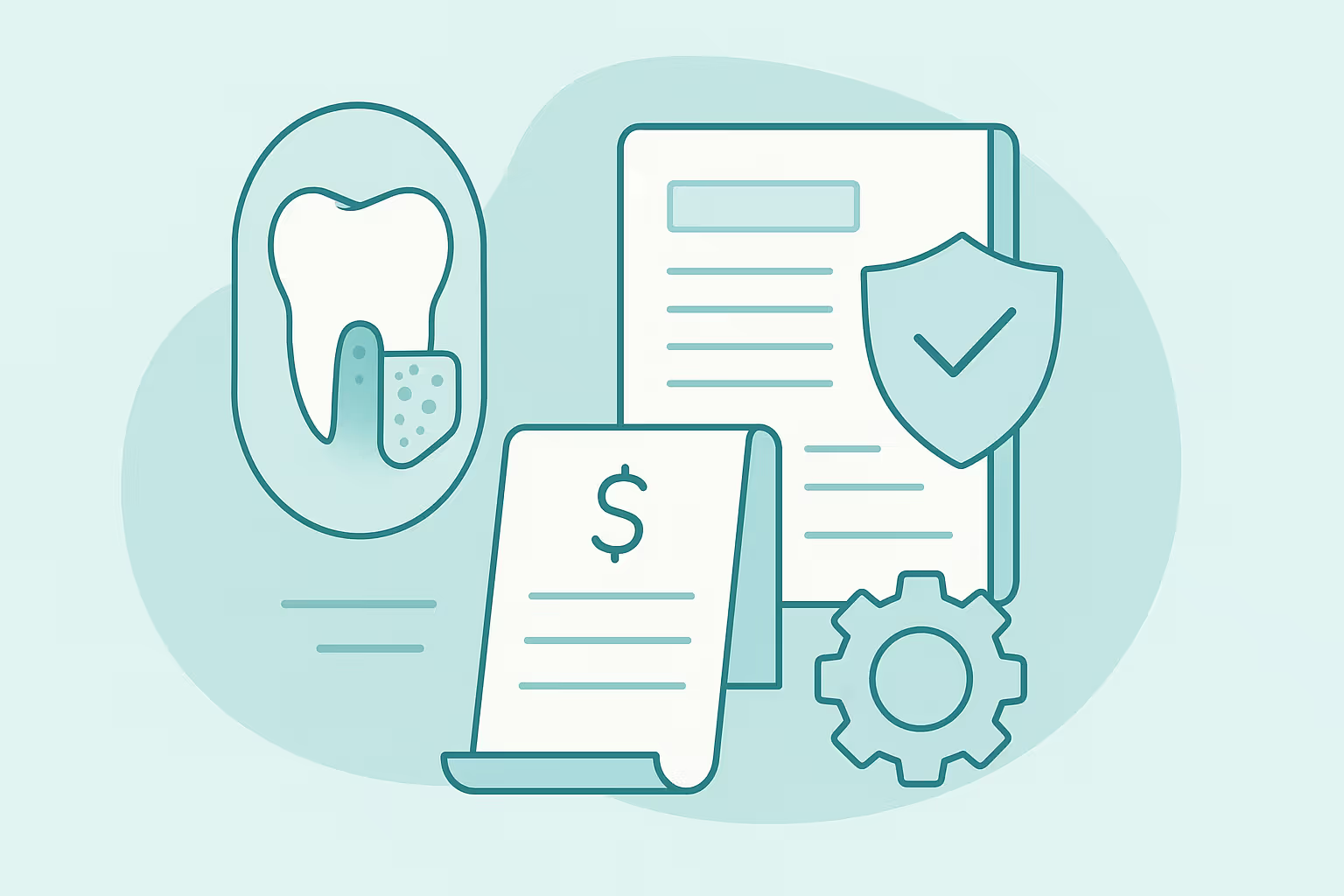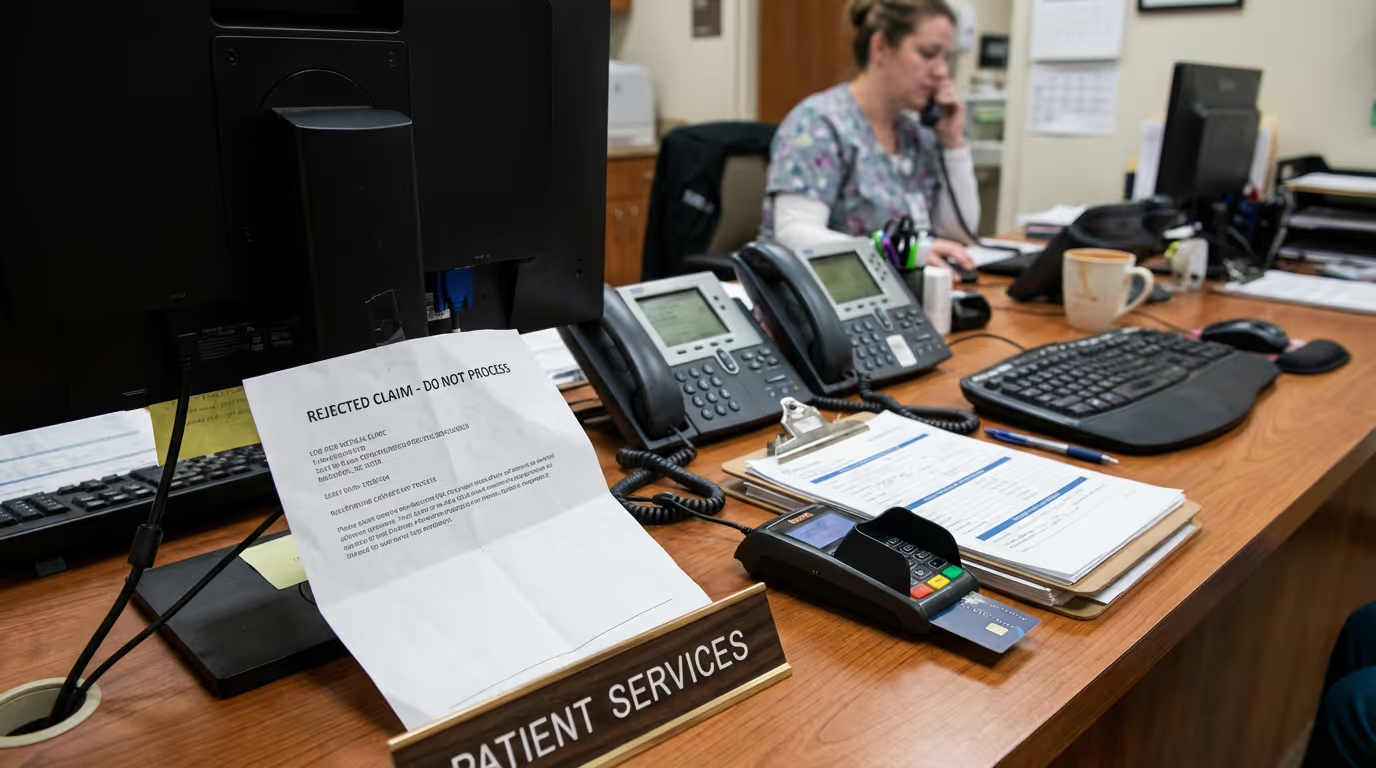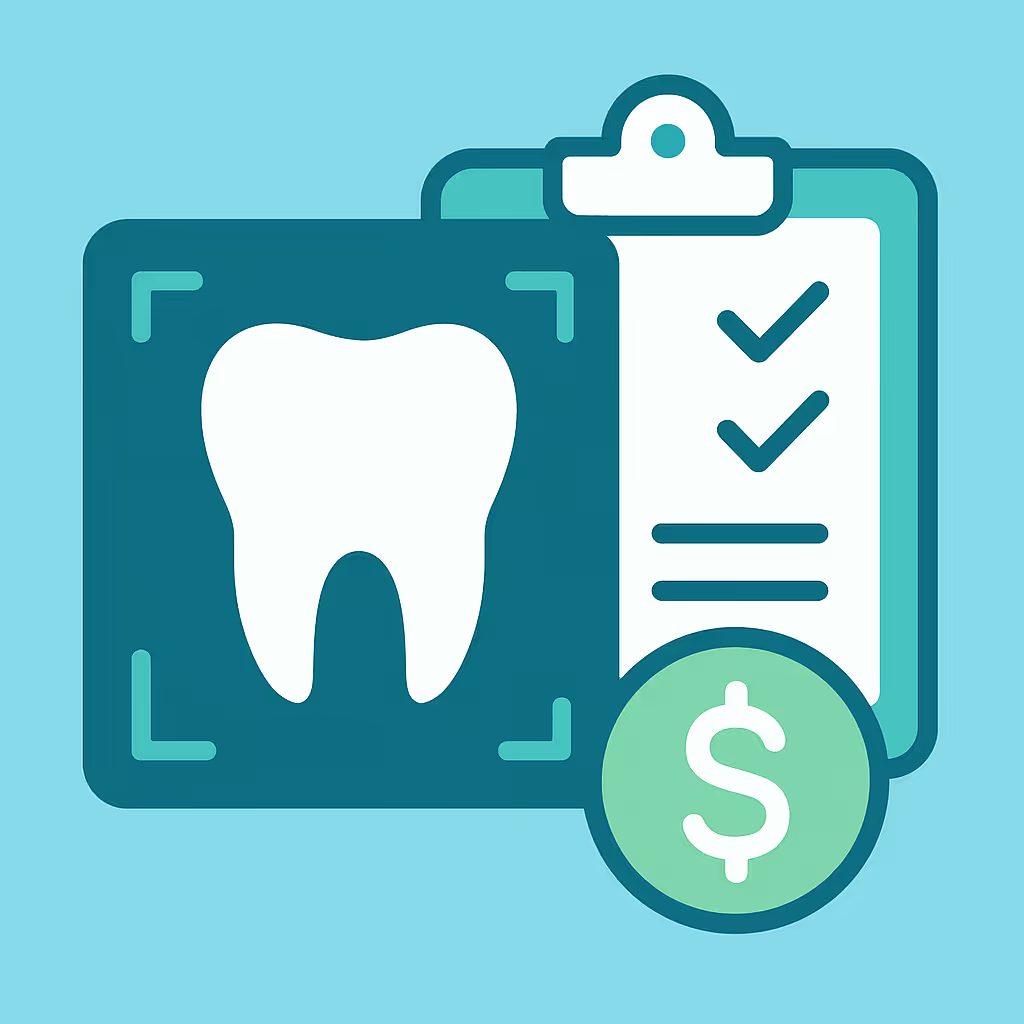Understanding Dental Code D7950
When to Use D7950 dental code
The D7950 dental code is used for billing procedures involving an osseous, osteoperiosteal, or cartilage graft of the mandible or maxilla. This CDT code applies when a dentist or oral surgeon places a bone or cartilage graft to repair or augment the jawbone, often in preparation for dental implants or to address bone loss due to trauma, pathology, or congenital defects. It is important to note that D7950 is not used for simple socket preservation or minor bone grafting; it specifically refers to more extensive grafting procedures involving the jawbones.
Documentation and Clinical Scenarios
Accurate documentation is essential for successful reimbursement when using D7950. Clinical notes should clearly describe the reason for the graft, the type and source of graft material (autogenous, allogenic, or xenograft), the surgical technique, and the specific site (mandible or maxilla). Radiographs, CBCT scans, and pre- and post-operative images should be included in the patient record and submitted with claims when possible. Common clinical scenarios for D7950 include:
- Rebuilding the alveolar ridge for future implant placement
- Repairing bone defects after cyst or tumor removal
- Augmenting bone in cases of severe periodontal disease
- Correcting congenital jawbone deficiencies
Be sure to differentiate D7950 from related codes, such as D7953 for bone replacement grafts in ridge preservation, to avoid claim denials.
Insurance Billing Tips
Billing for D7950 requires attention to detail and proactive communication with payers. Here are best practices followed by successful dental offices:
- Insurance Verification: Before treatment, verify the patient’s benefits for surgical grafting and medical necessity requirements. Many plans require pre-authorization for D7950.
- Detailed Claim Submission: Submit a comprehensive claim with clinical notes, radiographs, and a narrative explaining the need for the graft. Specify if the graft is related to trauma, pathology, or implant preparation.
- Coordination of Benefits: If the procedure is medically necessary, consider submitting to the patient’s medical insurance first. Attach supporting documentation and use appropriate ICD-10 diagnosis codes.
- Appeals Process: If a claim is denied, review the EOB for denial reasons, gather additional documentation, and submit a timely appeal with a detailed explanation and supporting evidence.
Staying organized with documentation and following up on claims can significantly improve reimbursement rates for D7950 procedures.
Example Case for D7950
Case: A 55-year-old patient presents with significant bone loss in the maxilla following the extraction of multiple teeth due to periodontal disease. The dentist determines that an osseous graft is necessary to rebuild the ridge for future implant placement. After verifying insurance coverage and obtaining pre-authorization, the procedure is performed using an allogenic bone graft. The clinical notes detail the extent of bone loss, graft material used, and surgical technique. Radiographs and intraoral photos are attached to the claim. The claim is submitted to both dental and medical insurance, and after an initial denial, an appeal with additional documentation leads to successful reimbursement.
This example highlights the importance of thorough documentation, proper code selection, and diligent follow-up in maximizing reimbursement for D7950 procedures.





